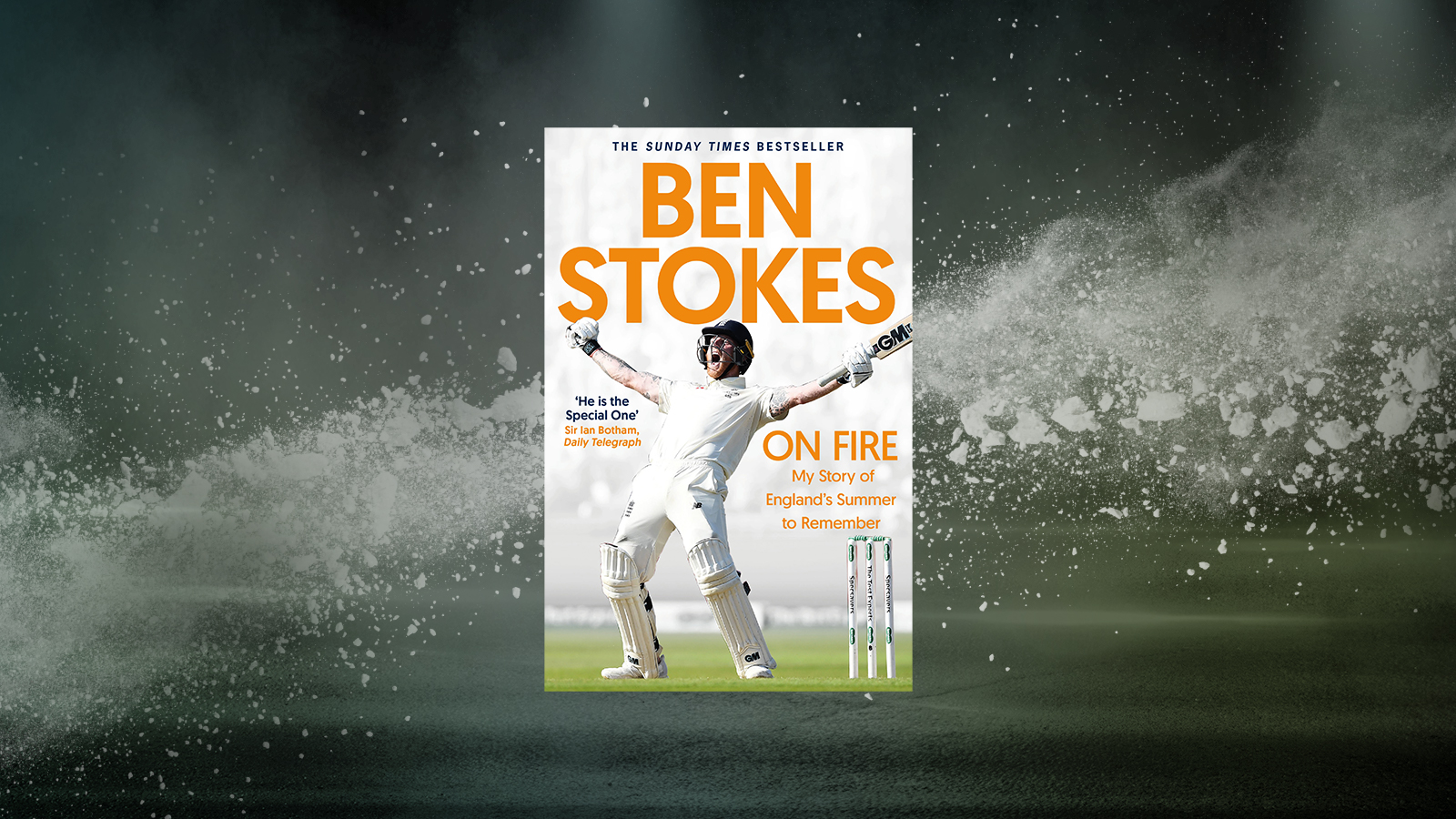Interview with Richard Gibson, Ghostwriter of Ben Stokes’ Autobiography ‘On Fire’
July 5, 2020

Awarded the Sir Garfield Sobers Trophy for Best Cricketer of the Year, the Wisden Leading Cricketer in the World, as well as BBC Sports Personality of the Year, Ben Stokes shot to international icon last year. Having worked together on his autobiography, Firestarter, he once again joined forces with Richard Gibson to share the story of one unforgettable summer.
Congratulations on being involved in On Fire, which has been nominated for The Telegraph Sports Book Awards Autobiography of the Year, in your role as ghostwriter, can you tell us how you came to be involved as ghostwriter on the book?
I previously wrote a book with Ben, Firestarter, four years ago in 2016, so I guess it was pretty natural for me to do this one as well.
How closely had you followed Ben’s career before you began the project? Did you have any preconceptions before you started on the book and were there any particular stories or issues you really wanted to address?
Obviously I worked on that previous project and I also cover the England team all the time in my day job for The Daily Mail so I’ve covered Ben’s career very closely. That previous book meant that I’ve known everything Ben’s been doing for the last five to six years or even longer. But I was quite excited about this book because, obviously, it was very much based on what happened last year, which I think most people will have seen on television or listened to on the radio with Ben’s extraordinary performances, so it was very much just about last summer and I was excited to hear his version of how things went and how they developed in his own mind.
Can you tell us a bit about the actual process of working with Ben to get the material for the book?
Ben and I are used to working together so we’d get together, probably ten to a dozen times, at his house or if England were playing matches around the country, we’d get together at hotels, spend time in his room, just chatting, me interviewing him and asking him questions.
Was there anything unexpected that you learnt about Ben or any particular stories that surprised you or that you really connected with?
I’ve known a lot of the stuff that has gone on in Ben’s career, but one thing I was quite surprised by was how matter-of-fact and how clinical he was as a thinker when he played the innings of his life at Headingley. I was surprised at just how he went about doing that in terms of keeping calm, so I guess that was surprising and quite revealing in terms of the way he went about piecing together that innings.
For many people, cricket fans and non-cricket fans alike, the summer of 2019 will stay in their memories forever, a sort of I was there when England won the World Cup moment. Can you share your own recollections of that summer of cricket and how perhaps your view of Ben changed?
I was at the World Cup Final and that was just extraordinary, just because of the drama of it – you couldn’t make it up. Just when you thought the match was going one way, it went the other and everyone was gripped for the whole time. I think that summed up a lot of the summer. And in terms of Ben, I just thought he was a really good cricketer, a really brilliant cricketer in fact, before, but somehow last summer made me think he may not actually be human, some of the stuff he was doing was just extraordinary – certainly there was a godlike presence about him and his cricket last year.
After the 2016 T20 World Cup loss to West Indies when Ben played a pivotal role in that final, how impressed have you been with Ben’s growth and development as a player and how did that manifest in the World Cup Final on 14th July?
I think before, Ben very much just played cricket and he was kind of a reactionary player, very instinctive, and he would just play off the cuff, whereas definitely in that four-year period he has become more able to read game situations, to manage the moments, to sniff the danger when he’s batting, to realise the pitfalls, all those kinds of things, and thrive. He’s definitely learnt as a cricketer. I know where he fell down in 2016 was with his bowling, but I just think he’s just better now at analysing and the best players can do that, they can see what’s coming before it happens, so I think that’s the most significant development.
It says a lot about Ben’s success last year that the book solely focuses on one summer, but how defining do you think that period will be in Ben’s career?
I think it was the summer that defined Ben. He will have to do something pretty extraordinary for him not to be forever linked and defined by 2019!
Ben comes across as a very modest figure in the book, quick to praise his teammates and share the success, but how integral is Ben to England cricket now and going forward?
I think he is a really good role model for the team in his attitude. If he could guarantee that the team wins the game, he’d happily get nought, well, I say happily… But he would rather get nought and have no wickets for fifty runs and the team win than him score a hundred and the team lose, but that’s the kind of attitude a number of the England side have and that’s the way they’ve developed the team ethos. Ben and Joe Root and Eoin Morgan – the senior players – have all brought into those values, this team value, so it feels pretty natural, it’s not like it’s forced. For instance when some people say it’s all about the team and it’s only partly believable, whereas with Ben, the more time you spend with him, the more you realise that’s all it’s about for him, he wants to win and be part of that win, and if he can contribute, that’s great, but the main thing is getting the victory
What are you most proud of with this book?
Just being a part of it. Ben was the sports star of last year – I don’t think he really had a rival in that regard – so to work with Britain’s most successful, recognised sportsman is an honour.
We can’t ignore the fact that we all had to get used to a world without sport, what have you particularly missed and are there any particular sporting events you are looking forward to?
Getting cricket back! It’s obviously been a major miss for everybody, so I’d just like to see cricket back in a safe environment.
Imagine if you will a world where we can all have dinner parties, which four sporting greats past or present would be invited?
Oh my goodness! I’d have to have Muhammad Ali because I think he’d keep things lively. I’ve got to be careful because I’ll get too biased and I’ll end up having footballers that I associate with my team. So I’ve got to think about the wider arena. I’d have Steve Waugh because he was the player I followed when I was a kid and I enjoyed his attitude, so I’d like to pick his brain. I’d definitely have a footballer; football’s a major thing for me, so I’m trying to think who I’d have from the world of football… Paul Gascoigne, I’ll have him to spice it up a bit. And the final one I would have would be Simone Biles, the gymnast, because I think she’s got a really interesting back story.
And finally, what three words would you use to sum up Ben Stokes?
Loyal. Aggressive. Winner.
